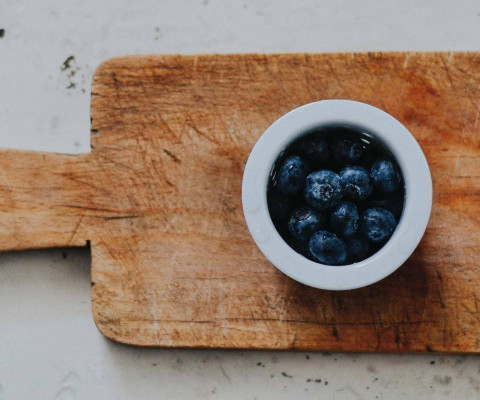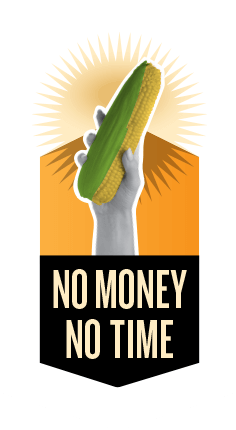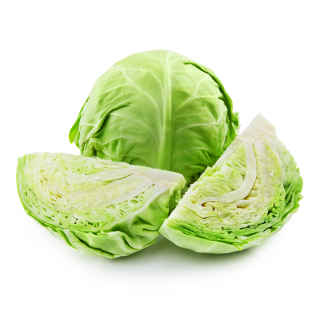
Cabbage
Did you know the heaviest cabbage ever grown was a whopping 63kg!!! As a sulphur rich food (which contributes to smelly farts), you wouldn’t want to be in close proximity to the person who ate that one!
While it may look like lettuce, cabbage is part of the brassica family of vegetables which includes broccoli, cauliflower and kale. Cabbage has some impressive health benefits including:
- Be Healthier:
Cruciferous vegetables like cabbage contains beneficial phytonutrients such as vitamin C, vitamin K, and manganese which help to reduce chronic inflammation
and reduce risk of heart disease. - Healthy Gut:
Cabbage is rich in the plant compound sulforaphane which may improve your bacterial gut flora.
- Support Immune Function:
Cabbage is a good source of vitamin C which is important for growth and development and maintenance of your immune system to help with wound healing and fighting infection.
Cabbage is often overlooked but can be found in a variety of dishes, including sauerkraut, kimchi and coleslaw. Just don’t eat too much cabbage when on a first date because the smelly farts could send them running for the hills.

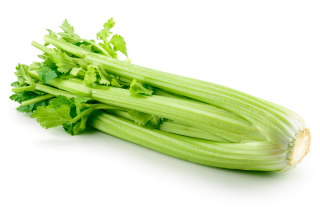
Celery
Let’s CELERY-brate this awesome vegetable! Did you know ancient Romans used celery as an aphrodisiac, so whether you are in the mood for love or just want a tasty low-energy snack make sure to add it to the top of your shopping list. Some of the health benefits include:
- Be Healthier:
Celery are high in phytonutrients (especially vitamin C and manganese) which help in protecting against cancer and heart disease.
- Support Immune Function:
Celery is a good source source of vitamin C which is important for growth and development and maintenance of your immune system to help with wound healing and fighting infection.
Celery can be enjoyed as a tasty snack with some hummus or in a soup, a salad or even added to some spag bol!

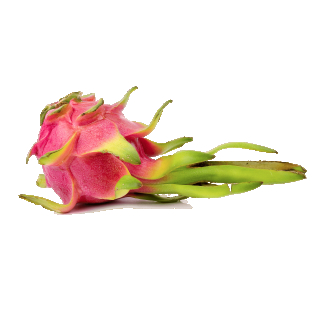
Dragon fruit
Dragon fruit which is also known as the pitaya fruit contains several health benefits. Besides being low in kilojoules, it is also a rich source of antioxidants, Vitamin C, fibre and one of the few fresh fruits that contains iron!
- Be Healthier:
Dragon fruit is high in antioxidants (especially betacyanins and betaxanthins) which helps to reduce inflammation and reduce the risk of chronic diseases such as: heart disease, cancer, diabetes and inflammatory bowel diseases. Being a good source of iron, dragon fruit is important for populations with nutritional iron deficiency and may help to prevent poor pregnancy outcomes
- More Energy:
Dragon fruit is a good source of iron which is especially important for populations with nutritional iron deficiency and may help to improve work performance and reduce fatigue.
- Healthy Gut:
With 3g of fibre in one average sized dragon fruit (approx 12% of recommended daily fibre intake), dragon fruit is an excellent choice to be incorporated in your diet to meet your recommended daily requirement. It is also a good source of prebiotics that helps in promoting the growth of healthy bacteria in your gut.
- Support Immune Function:
Dragon fruit is high in vitamin C to help with wound healing and fighting infection. Vitamin C also helps the body to enhance the absorption of iron.
Enjoy it by simply incorporating Dragon fruit into your favourite smoothies and salads now!
FYI: Do you know that dragon fruit belongs to the cacti family?

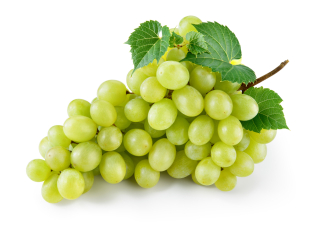
Grapes
Grapes are one of the world’s favourite fruits (and not just because they are the core ingredient in wine). They are delicious, sweet and juicy, offering a wealth of health benefits including:
- Be Healthier:
Grapes are a good source of resveratrol which has shown to protect against heart disease and against the development of cancer.
- Sharper Thinking:
Studies have shown that the polyphenols in grapes can improve attention and memory.
- Support Immune Function:
Grapes are a good source of vitamin C which is important for growth and development and maintenance of your immune system to help with wound healing and fighting infection.
There are around 60 species of grapes which divide into over 8,000 varieties, but the most common are the red and white grapes. For a health boost add some grapes to your diet – your body will be ‘grapeful’ for it!

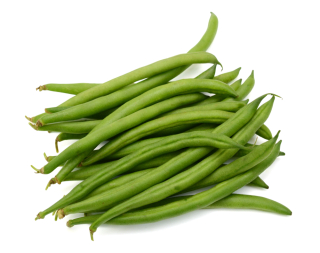
Green Beans
Green beans are the perfect side-dish for many main meals, they are a rich in vitamins A, C and K, folic acid and fibre. So add some green beans to your plate to get these awesome benefits:
- Be Healthier:
Being rich in Folate, green beans are vital for a healthy pregnancy and reduces risk of Neural Tube Defects during pregnancy.
- Support Immune Function:
Being rich in Vitamin C, green beans can help your body fight off infections.
Why not give them a try, you can have them raw with hummus, mixed in with a Thai curry or added to a green salad.

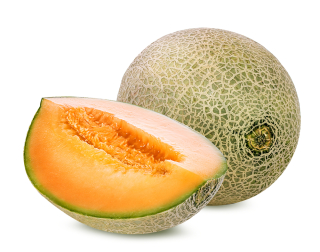
Melon
Did you know that the Yubari melon, a juicy and extremely sweet orange melon, is the world’s most expensive fruit, coming in at $23,000 per pair? Don’t worry not all melons cost you an arm and a leg, you can get sweet and juicy watermelon, cantaloupe and honeydew all at low cost and still get amazing health benefits:
- Be Healthier:
High-fibre fruit like melon can help reduce the risk of Heart disease, Type 2 diabetes and high blood pressure.
- Healthier Skin:
Melons have a high Beta Carotene (cantaloupe) and Lycopene (red watermelon) content which can improve Healthier Skin and overall appearance.
- Support Immune Function:
Melons are a good source of vitamin C and Vitamin A which is important for growth and development and maintenance of your immune system to help with wound healing and fighting infection.
This aromatic, juicy and refreshing fruit can be eaten fresh as part of breakfast, added to salads and seafood dishes or served as a dessert with yoghurt. Yum!

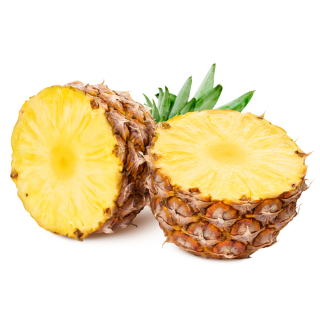
Pineapple
Pineapples are not only a pizza topping, they are a delicious and refreshing tropical fruit which have been linked to many health benefits including:
- Be Healthier:
Pineapples are high in phytonutrients (especially Vitamin C and Manganese) which help in protecting against cancer and Heart disease.
- Better Sports Performance:
Strenuous exercise can cause inflammation and result in muscle soreness for up to 3 days. But research has shown that the nutrient Bromelain in pineapples may reduce this inflammation and speed up recovery from the damage caused by exercise.
- Support Immune Function:
Pineapples are loaded with vitamin C to help with wound healing and fighting infection.
To get some more pineapple in your diet, why not add it to a smoothie for breakfast, or in a salad with roast chicken, or in a dessert as a delicious fruit salad?

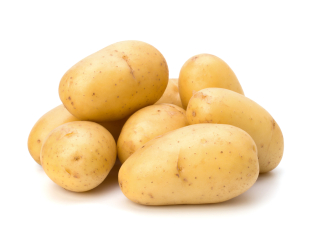
Potatoes
Did you know that potatoes were the first food to be grown in space? In 1996, potato plants were taken into space with the space shuttle ‘Columbia’. This ‘out of space’ vegetable also has a number of health benefits including:
- Be Healthier:
Potatoes are high in potassium with is linked with reduced risk of hypertension and heart disease.
- Support Immune Function:
Potatoes are a good source of vitamin C to help with wound healing and fighting infection.
- Feel Fuller for Longer:
Satiety is the feeling of fullness and loss of appetite that occurs after eating. Potatoes are considered one of the most satiating (filling) foods so may be useful as part of a weight loss diet.
Best eaten boiled or baked. Potatoes are a great side-dish or snack to add to your plate.

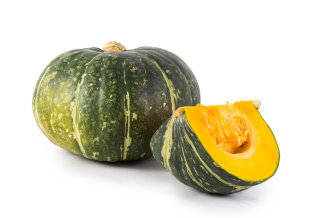
Pumpkin
Everyone’s favourite Halloween dish, pumpkin can be enjoyed all year round and is incredibly nutritious, with these awesome benefits:
- Be Healthier:
As a good source of beta carotene, pumpkins may to help lower risk of metabolic syndrome. Metabolic syndrome is the cluster of symptoms associated with obesity i.e., high blood pressure, poor blood sugar control and elevated triglyceride levels.
- Healthier Skin:
Pumpkins are great sources of phytonutrients such as Vitamin C and Beta Carotene which can protect skin from the Sun’s damaging UV rays and improve overall appearance.
- Support Immune Function:
Being rich in Vitamin C, pumpkin can help your body fight off infections.
So don’t be scared to add some more pumpkin to your plate!

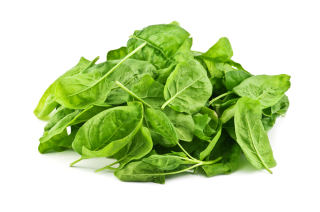
Spinach
Green leafy veg like spinach are absolutely cram packed with vitamins and minerals, especially iron, folic acid, carotenoids, Vitamin C and Vitamin K. Spinach has a number of health benefits including:
- Be Healthier:
Fruit and vegetables can help ward off type two diabetes, but a closer look at specific types found that green leafy vegetables including spinach had the greatest protective effect. There is also strong evidence showing that green leafy veg can reduce risk of heart disease by up to 16%. As a good source of iron, spinach is important during pregnancy to prevent poor pregnancy outcomes such as preterm labour, low birth weight and infant mortality.
FYI: Dietary iron absorption is low in vegans and vegetarians. This is because in plant-based diets most dietary iron is non-haem iron, and its absorption is often less than 10%. This is much lower than meat which is haem iron, where absorption is 15-35%. If you are vegan or vegetarian click here for more ways on how to increase Iron absorption in Vegans and Vegetarians.
- Healthier Skin:
Green leafy Veg such as spinach are great sources of phytonutrients such as lutein, vitamin C and beta carotene which can improve skin health health and appearance.
- More Energy:
Spinach is a good source of iron. This is important to prevent fatigue and reduced work performance.
- Support Immune Function:
Consumption of iron-containing foods such as spinach can help to prevent anaemia and reduce susceptibility to infections.
With so many health benefits it’s no wonder why Popeye loved spinach so much!

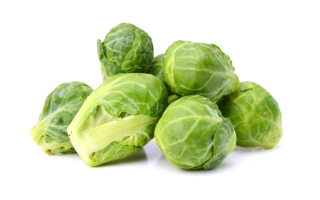
Sprouts
Brussel Sprouts can be enjoyed all year round (not just at Christmas). These cruciferous vegetables boast many nutrients and have been linked to several health benefits including:
- Be Healthier:
Sprouts are high in fibre which can help reduce the risk of Heart disease, type 2 diabetes and high blood pressure.
Sprouts are also rich in folate which is vital for a healthy pregnancy and reduces risk of neural tube defects during pregnancy.
- Support Immune Function:
Sprouts are an excellent source of vitamin C. In fact, half a cup of sprouts provides around 80% of your daily vitamin C needs. This high source of vitamin C is important for growth and development and maintenance of your immune system to help with wound healing and fighting infection.
Be careful not to overcook sprouts as this makes them smell like rotten eggs due to the high levels of sulforaphane they contain. On the other hand, roasted, sautéed or grilled sprouts can taste sweet and nutty – and delicious.

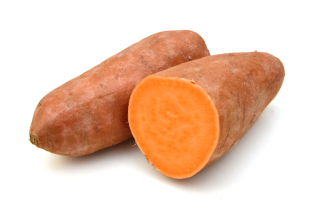
Sweet Potato
Sweet potatoes are full of nutrients. They can be baked, barbecued, fried, mashed, roasted or steamed to create a tasty piece of tucker! They are rich in beta carotene, vitamin C and fibre with many health benefits, including:
- Be Healthier:
Sweet potatoes are rich in carotenoids, which help to protect against heart disease and cancer.
- Healthy Gut:
One large sweet potato contains around 7g of fibre which is 23% of the recommended daily fibre intake. As a good source of fibre, sweet potato promotes a healthy microbiome.
Make sure to keep the skin on to retain the benefits of fibre!
- Healthier Skin:
Sweet potatoes are rich in beta carotene which can improve skin health and appearance.
- Support Immune Function:
Sweet potatoes are a good source of vitamin C to help with wound healing and fighting infection.
Enjoy sweet potatoes in roasts, bakes, warm salads or pastas to boost the goodness in your next meal!

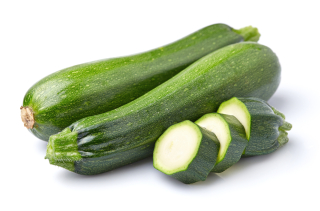
Zucchini
Zucchinis (or courgette) may look like a cucumber but they are a type of squash. The word “zucchini” comes from the Italian zucchino, meaning a small squash. Although it is technically a fruit (because it develops from a flowering plant), zucchini is widely referred to as a vegetable because it is cooked and eaten like a vegetable. It has many health benefits including:
- Be Healthier:
Zucchinis are a good source of potassium which can aid in reducing blood pressure and lower risk of heart disease and all-cause mortality.
- Support Immune Function:
Zucchini is a good source of vitamin C which is important for growth and maintenance of your immune system to help with wound healing and fighting infection.
Unlike cucumber, zucchini is usually served cooked and can be boiled, grilled, steamed, stuffed and baked, barbecued or fried. You can leave the skin on to create Zucchini noodles by using a veg spiraliser. This versatile vegetable is a ‘must have’ food on your shopping list!
Did you know: The flower of the zucchini plant is also edible (and it is yum!)

